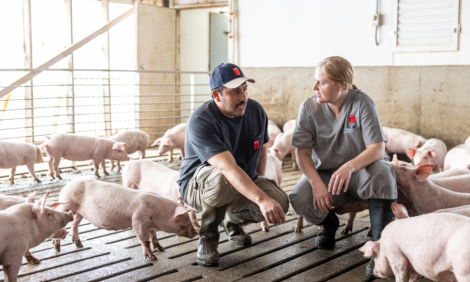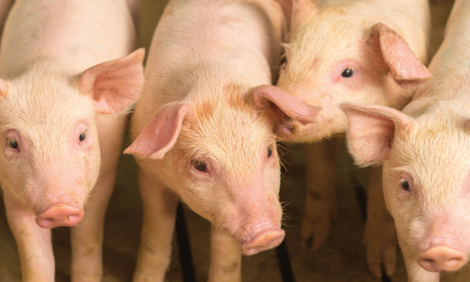



FBN scientist leads first German research consortium for cell-based meat
Knowledge gaps that still exist require significant academic researchThe conventional production of meat with farm animals is an important contribution to supplying the population with animal protein. However, it is under criticism because of negative impacts on the environment and climate as well as in relation with ethical concerns and changing eating habits. In addition, the world population is expected to grow to 10 billion people by 2050.
To solve this conflict of targets, an increasing number of start-ups, investors and large food producers worldwide are relying on so-called “in vitro meat”, which is produced directly from cells of farm animals. However, essential scientific questions need to be clarified before products from cell-based agriculture can be marketed in Germany and the EU as an ethically sound, healthy and climate-friendly alternative to conventional meat.
The scientist PD Dr. Monika Röntgen and her team at the Research Institute for Farm Animal Biology (FBN) want to close the existing gaps in knowledge and develop sustainable process solutions in the multidisciplinary research consortium “CELLZERO Meat” founded together with partners.
The Federal Ministry of Education and Research (BMBF) is funding the “CELLZERO Meat” project under the leadership of the FBN with 1.19 million euros. The project is being carried out in accordance with the objectives and guidelines of the Federal Government set out in the “National Research Strategy Bioeconomy 2030” and the “National Policy Strategy Bioeconomy”.
“We have strong partners at our side and completely new research approaches,” emphasised project leader Dr. Röntgen.
The research network includes the Leibniz Institute for Plasma Research and Technology in Greifswald (Mecklenburg–Western Pomerania), the Anhalt University of Applied Sciences in Bernburg (Saxony-Anhalt) and the PAN-Biotech GmbH in Aidenbach (Bavaria).
Three main challenges need to be solved
“There are a number of unresolved scientific hurdles that have so far delayed the production of cell-based meat alternatives and thus, the emergence of a market. We want to make a contribution to overcoming these by developing a process based on the results of our own basic research,” says Dr. Röntgen.
“The focus of the project is therefore on finding and implementing alternatives for three main problems in the cell-based production of animal protein. This concerns the use of foetal calf serum and antibiotics in the growth media used for cell culture, as well as the use of genetic engineering methods,” said the scientist.
Since 2018, the FBN has already been researching cell-based meat under the leadership of Dr. Röntgen.
“Our many years of research into muscle development in pigs and the functionality of muscular stem cells was the basis of the project idea for CELLZERO Meat, which was successfully tested and further developed in an exploratory phase already funded by the BMBF. In a two-year feasibility study, which started in July 2022, work is now being done in an innovative research network to implement essential process steps in practice.”
Highly specialised partners in the network
The FBN team led by Dr. Röntgen is responsible for the cell biological part of the process, which does not require genetic engineering interventions and includes all steps from obtaining the starting material to the cell-based product (sausage or structured meat). In parallel, the partners at Anhalt University of Applied Sciences are researching and investigating which meat technological, functional and sensory properties of the raw material are required for the production of a tasty and healthy food from animal cells.
“It is important to us that the required stem cells can be obtained ethically, i.e. non-invasively and without killing or suffering animals,” emphasised the veterinarian.
Replacements for foetal calf serum, which is obtained from the blood of unborn calves, and new nutrient solutions for the cell cultures are being developed in cooperation with the Bavarian company PAN-Biotech GmbH. In order to avoid the use of antibiotics during the entire process, a new, residue-free, plasma-based decontamination process is being developed at INP in Greifswald.
Focus on commercial launch
“Cell-based meat production is a highly complex and currently, very cost-intensive process. Scalable production processes and stand-alone technologies have to be developed in multidisciplinary cooperation, which include solutions for the biological processes, but also for their technical implementation, taking sustainability and ethical aspects into account. Therefore, it will still need some time before cell cultured meat reaches our plate. However, we are convinced that it is possible to develop scientifically sound and ethically unobjectionable processes. In view of the world food situation, there is no way around the meat of the future,” concludes the scientist.
The results of the research consortium are to be presented in two years at the latest. Then topics, such as usability and market launch will also play a decisive role.






